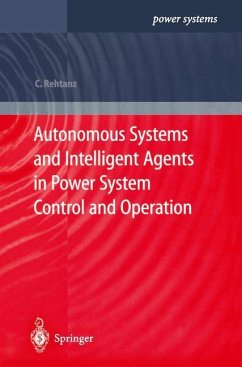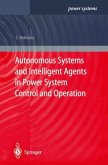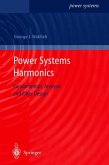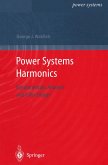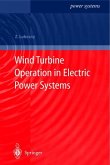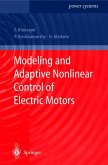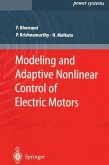Autonomous systems are one of the most important trends for the next generation of control systems. This book is the first to transfer autonomous systems concepts and intelligent agents theory into the control and operation environment of power systems. The focus of this book is to design a future control system architecture for electrical power systems, which copes with the changed requirements concerning complexity and flexibility and includes several applications for power systems. This book draws the whole circle from the theoretical and IT-concept of autonomous systems for power system control over the required knowledge-based methods and their capabilities to concrete applications within this field.
From the reviews: "The book Autonomous Systems and Intelligent Agents in Power System Control and Operation by Christian Rehtanz provides a current overview of robust approaches to power system automation and control system autonomy, and uses a number of contributors to discuss key topics. ... The author characterizes several of the concerns, such as restoration and situational awareness, with a practical approach that engineers in the field can use as a basis for future designs. The graduate student in the power area would also benefit ... ." (Craig Rieger, International Journal of Robust and Nonlinear Control, Issue 16, 2006)

